A mote it is to trouble the mind's eye.
In the most high and palmy state of Rome,
A little ere the mightiest Julius fell,
The graves stood tenantless, and the sheeted dead
Did squeak and gibber in the Roman streets;
As, stars with trains of fire and dews of blood,
Disasters in the sun; and the moist star,
Upon whose influence Neptune's empire stands,
Was sick almost to doomsday with eclipse:
And even the like precurse of fierce events,--
As harbingers preceding still the fates,
And prologue to the omen coming on,--
Have heaven and earth together demonstrated
Unto our climature and countrymen.--
But, soft, behold! lo, where it comes again!
[ Re-enter Ghost. ]
I'll cross it, though it blast me.--Stay, illusion!
If thou hast any sound, or use of voice,
Speak to me:
If there be any good thing to be done,
That may to thee do ease, and, race to me,
Speak to me:
If thou art privy to thy country's fate,
Which, happily, foreknowing may avoid,
O, speak!
Or if thou hast uphoarded in thy life
Extorted treasure in the womb of earth,
For which, they say, you spirits oft walk in death,
[ The cock crows. ]
Speak of it:--stay, and speak!--Stop it, Marcellus!
Mar.
Shall I strike at it with my partisan?
Hor.
Do, if it will not stand.
Ber.
'Tis here!
Hor.
'Tis here!
Mar.
'Tis gone!
[ Exit Ghost. ]
We do it wrong, being so majestical,
To offer it the show of violence;
For it is, as the air, invulnerable,
And our vain blows malicious mockery.
Ber.
It was about to speak, when the cock crew.
Hor.
And then it started, like a guilty thing
Upon a fearful summons. I have heard
The cock, that is the trumpet to the morn,
Doth with his lofty and shrill-sounding throat
Awake the god of day; and at his warning,
Whether in sea or fire, in earth or air,
The extravagant and erring spirit hies
To his confine: and of the truth herein
This present object made probation.
Mar.
It faded on the crowing of the cock.
Some say that ever 'gainst that season comes
Wherein our Saviour's birth is celebrated,
The bird of dawning singeth all night long;
And then, they say, no spirit dare stir abroad;
The nights are wholesome; then no planets strike,
No fairy takes, nor witch hath power to charm;
So hallow'd and so gracious is the time.
Hor.
So have I heard, and do in part believe it.
But, look, the morn, in russet mantle clad,
Walks o'er the dew of yon high eastward hill:
Break we our watch up: and by my advice,
Let us impart what we have seen to-night
Unto young Hamlet; for, upon my life,
This spirit, dumb to us, will speak to him:
Do you consent we shall acquaint him with it,
As needful in our loves, fitting our duty?
Mar.
Let's do't, I pray; and I this morning know
Where we shall find him most conveniently.
[ Exeunt. ]
Scene II. Elsinore. A room of state in the Castle.
[ Enter the King, Queen, Hamlet, Polonius, Laertes, Voltimand, Cornelius, Lords, and Attendant. ]
King.
Though yet of Hamlet our dear brother's death
The memory be green, and that it us befitted
To bear our hearts in grief, and our whole kingdom
To be contracted in one brow of woe;
Yet so far hath discretion fought with nature
That we with wisest sorrow think on him,
Together with remembrance of ourselves.
Therefore our sometime sister, now our queen,
Th' imperial jointress to this warlike state,
Have we, as 'twere with a defeated joy,--
With an auspicious and one dropping eye,
With mirth in funeral, and with dirge in marriage,
In equal scale weighing delight and dole,--
Taken to wife; nor have we herein barr'd
Your better wisdoms, which have freely gone
With this affair along:--or all, our thanks.
Now follows, that you know, young Fortinbras,
Holding a weak supposal of our worth,
Or thinking by our late dear brother's death
Our state to be disjoint and out of frame,
Colleagued with this dream of his advantage,
He hath not fail'd to pester us with message,
Importing the surrender of those lands
Lost by his father, with all bonds of law,
To our most valiant brother. So much for him,--
Now for ourself and for this time of meeting:
Thus much the business is:--we have here writ
To Norway, uncle of young Fortinbras,--
Who, impotent and bed-rid, scarcely hears
Of this his nephew's purpose,--to suppress
His further gait herein; in that the levies,
The lists, and full proportions are all made
Out of his subject:--and we here dispatch
You, good Cornelius, and you, Voltimand,
For bearers of this greeting to old Norway;
Giving to you no further personal power
To business with the king, more than the scope
Of these dilated articles allow.
Farewell; and let your haste commend your duty.
Cor. and Volt.
In that and all things will we show our duty.
King.
We doubt it nothing: heartily farewell.
[ Exeunt Voltimand and Cornelius. ]
And now, Laertes, what's the news with you?
You told us of some suit; what is't, Laertes?
You cannot speak of reason to the Dane,
And lose your voice: what wouldst thou beg, Laertes,
That shall not be my offer, not thy asking?
The head is not more native to the heart,
The hand more instrumental to the mouth,
Than is the throne of Denmark to thy father.
What wouldst thou have, Laertes?
Laer.
Dread my lord,
Your leave and favour to return to France;
From whence though willingly I came to Denmark,
To show my duty in your coronation;
Yet now, I must confess, that duty done,
My thoughts and wishes bend again toward France,
And bow them to your gracious leave and pardon.
King.
Have you your father's leave? What says Polonius?
Pol.
He hath, my lord, wrung from me my slow leave
By laboursome petition; and at last
Upon his will I seal'd my hard consent:
I do beseech you, give him leave to go.
King.
Take thy fair hour, Laertes; time be thine,
And thy best graces spend it at thy will!--
But now, my cousin Hamlet, and my son--
Ham.
[ Aside. ] A little more than kin, and less than kind!
King.
How is it that the clouds still hang on you?
Ham.
Not so, my lord; I am too much i' the sun.
Queen.
Good Hamlet, cast thy nighted colour off,
And let thine eye look like a friend on Denmark.
Do not for ever with thy vailed lids
Seek for thy noble father in the dust:
Thou know'st 'tis common,--all that lives must die,
Passing through nature to eternity.
Ham.
Ay, madam, it is common.
Queen.
If it be,
Why seems it so particular with thee?
Ham.
Seems, madam! Nay, it is; I know not seems.
'Tis not alone my inky cloak, good mother,
Nor customary suits of solemn black,
Nor windy suspiration of forc'd breath,
No, nor the fruitful river in the eye,
Читать дальше
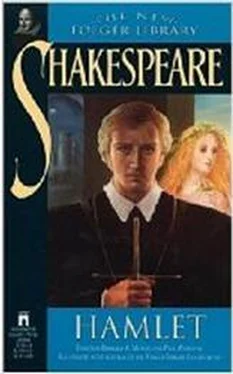
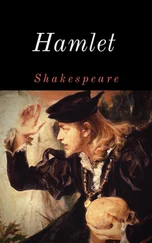
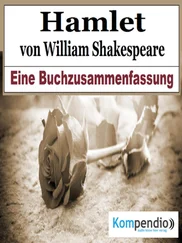
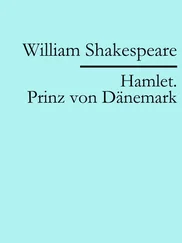


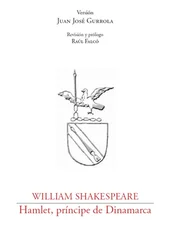



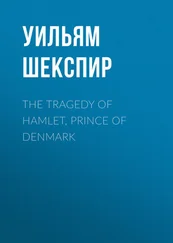
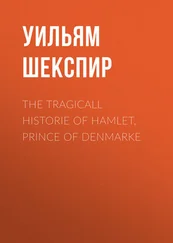
![Уильям Шекспир - The Works of William Shakespeare [Cambridge Edition] [Vol. 1 of 9]](/books/746589/uilyam-shekspir-the-works-of-william-shakespeare-c-thumb.webp)